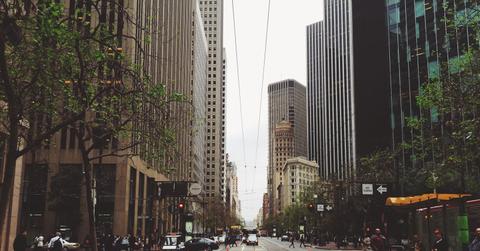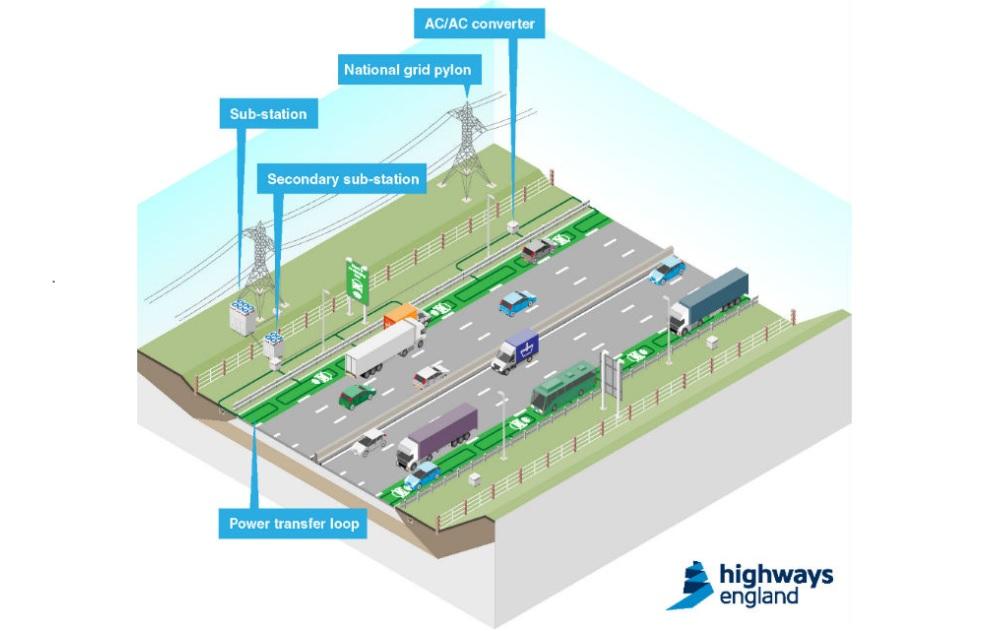Sick Of Potholes? Self-Repairing Roads Could Also Charge Your Electric Car
A new self-healing asphalt has been tested on multiple roads in the Netherlands. Scientists believe that it will save a lot of money on future repairs and the technology inside of it could fuel electric cars and decrease the need for charging stations.
Updated May 26 2019, 3:18 p.m. ET

One of the many problems of our common streets is how quickly they can deteriorate. Cracks and potholes form, creating a dangerous environment for drivers and pedestrians. It can also be hard on vehicles by causing tears on the wheels. Scientists at the Delft University of Technology have been continuing to research self-repairing asphalt to extend the life of these roads, and there’s also a chance that this substance can charge electric vehicles as they become more of the standard.
The unique asphalt has already been tested on multiple roads in the Netherlands and in China. Since opening the first public road seven years ago, all of them are still in great shape. This self-repairing asphalt technically doesn’t do everything by itself, however. There’s a machine that features an induction motor that rolls across it and the steel fibers inside of the substance will heat up and it’ll expand to repair any cracks or other openings that have been created.
Instead of needing to close down roads for days or weeks at a time, which creates even more traffic headaches and potentially dangerous situations, all it would take is the process of heating this asphalt up. It would also be cheaper in the long term when compared to the resources required to repair roads now. While the cost would be bigger initially, Angela Chen of The Verge reports that “it could save the Netherlands 90 million Euros a year if all the roads used this material.”
Steel fibers inside of the asphalt can also produce another unique feature -- it can generate electricity. That’s significant because that power could be used to charge electric cars as they either sit or roll over the self-repairing asphalt. The best scenario is charging the vehicle as it waits at a traffic light stop. Of course, this wouldn’t just happen with any EV. There would need to be a specific wireless charging system in place to absorb that electricity.
This isn’t the first time that there were experiments being done with electric cars charging on the road. The wireless charging technology was tested out by the British government in 2015. There would be cables underneath a specific lane that these EVs could drive over and heat up. It’s still in the testing period and the government is still adding charging stations so any driver can reach a location in less than a half hour.
Overall, there’s a chance that this expensive substance could extend the life of these roads with less maintenance and there would less of a need to have numerous charging stations for EVs. This will all be met with some initial pushback. The process of fixing roads is always a costly subject, and the additional expenses of putting in self-healing asphalt would be a tough sell especially when equipment is still needed to activate it. Jon Fingas of Engadget reports that it would cost “25 percent more” to build or repair these roads, which is very high for something that has just limited proof that it works.
As technology evolves and more people begin to repair roads with the new asphalt, expect more people to bite the bullet and try it out. Scientists believe that people will really tell the difference when normal asphalt starts to break after 10 years while the new substance will stay intact.
